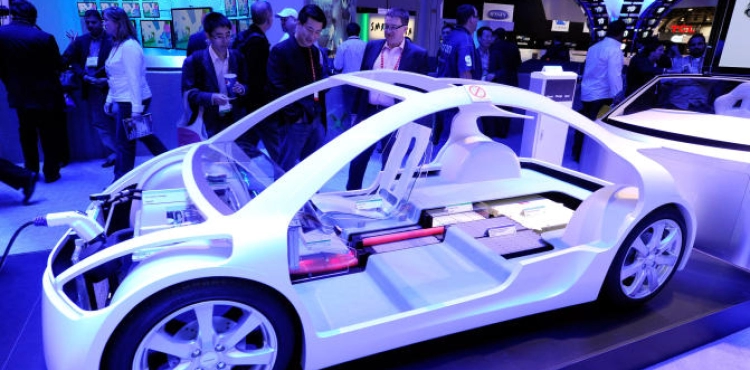The technology fair that is held annually in Las Vegas and attracts a large number of visitors seeks to remain this year a key meeting place for innovators and investors, even if it will be completely hypothetical due to the Covid-19 pandemic.
The Las Vegas Electronics Show (CES) 2021 will receive fewer exhibitors than in previous years, and the Covid-19 epidemic will be the most prominent present, as it will be rich in new technology-related innovations in organizing new work and health and education services.
However, the event, which will take place between January 11 and 14, will be devoid of product launches on the big screen, spontaneous encounters with models, or interactions with robots that have been drawing thousands of participants and visits in recent years.
"We have had to adapt," said Gary Shapiro, president of the Consumer Technology Association, which organizes the exhibition, stressing that the virtual version "will embody the way innovation is paving the way for a better tomorrow."
The event will witness the practice of introducing new technical accessories, as about 1,700 exhibitors registered for this purpose at the end of December, compared to 4,000 for the 2020 edition, as well as the interventions of officials in the technology sector and seminars on topics related to the impact of technology on daily life.
Some of the events will be broadcast live, including to the general public, and presenters will guide participants to the events as they happen.
The vice president of "Consumer Technology Association" Jean Foster pointed out that the most important thing remains to be able to conduct interactions, "so we prepared for the event in a way that allows people to interact with each other."
Despite these efforts, the digital format discouraged many participants from participating in the event, according to analysts.
Bob O´Donnell of Techanalis Research said that companies wishing to make a buzz prefer to hold their own virtual events so that the "glow" of their new products is not lost among the crowd of innovations presented at the exhibition.
The expert pointed out that "people are using technology to a degree that they had not previously imagined, to find new ways of everyday life."
The health crisis shed light on technical innovations in the field of health, which led to the generalization of e-medicine services through remote medical consultations using special applications or through video, in light of the many hesitations to visit doctors´ clinics in person.
The pandemic has also highlighted the importance of technical tools in distance learning, as many schools continue to offer education classes exclusively via the Internet.
Streaming services and video games themselves imposed a basic element in the daily life of many, with families forced to stay home due to restrictions on movement and the closure of cultural institutions.
Interest has also increased significantly in sports equipment, including home bikes, as well as advanced electrical appliances.
"Technology is proving its success, and our virtual life has become a reality thanks to social networks and cloud computing platforms," ​​said Robin Murdock of Accenture.
While tech giants were the biggest winners from this situation, the opportunities for startups that began to unleash their imaginations increased.
"We have noticed a faster development than ever before in (developing) products," Murdock stressed, pointing out that Las Vegas Electronics Show "shows that technology has become the basis for all industries."
This applies especially to the health sector, in light of the great increase in needs in this regard.
"The elderly are becoming increasingly isolated (...) due to the physical distancing imposed by the pandemic," said Arthur Joe, whose start-up "Live Freely" will unveil an app for personal assistants to enable families to stay in contact with their elderly relatives.
The company, "Humetrix" for health technology, will discover software that allows especially the management of medical files for patients, in light of the increase in consultations outside the framework of treating doctors.












